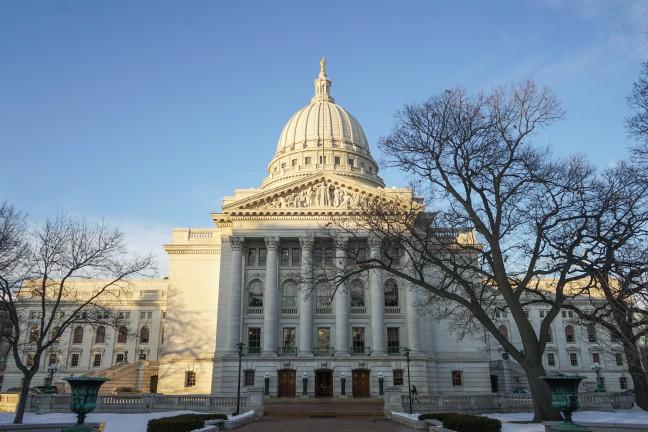Wisconsin Senate Bill 49, also known as Assembly Bill 41, is moving through Wisconsin’s legislative body and could be heading toward its now second executive session. The bill provides provisions for a safe harbor law for minors who are being human-trafficked into prostitution.
Rep. Jill Billings, D-LaCrosse, the lead author for the Assembly version of the bill, said instead of arresting these victims, they would go into Child Protective Services.
“They are brought in through human services instead of being put in jail in an orange jumpsuit and chains,” Billings said.
Billings explained that sex-trafficking victims often come from troubled pasts, which could include sexual abuse, drug dependency or homelessness.
When these already-troubled youths are arrested for prostitution, it adds further trauma as well as makes getting their lives back on track more difficult, Billings said.
Billings also pointed out that human trafficking is a prominent issue in Wisconsin, which was brought to light by the FBI’s Operation Cross Country, an annual action where law enforcement aims to recover trafficking victims and spread awareness of the issue.
Results from a 2015 operation revealed that Milwaukee tied for third in the nation in terms of minors recovered from human trafficking situations. Milwaukee has even been dubbed the ‘Harvard of pimp schools’ by Dana World-Patterson, chair of the Human Trafficking Task Force of Greater Milwaukee.
Though Milwaukee is a focal point for trafficking, the problem is statewide. Former Wisconsin Department of Children and Families Secretary Eloise Anderson and former Wisconsin Attorney General Brad Schimel co-headed the first state-level Anti-Human Trafficking Task Force which operated from January 2015 through December 2017.
At the end of the task force’s operation, the DCF released a report in December of 2018 revealing the reality of human trafficking in Wisconsin.
In 15 months, there were 422 child sex trafficking allegations. Of these, about 40 percent occurred in Milwaukee county while almost 60 percent occurred in other countries. In the end, there were 99 substantiated allegations with 86 of them involving unique individuals. Nearly half of the substantiated claims originated in Milwaukee.
Government efforts in this sect are often delegated to the DCF, which focuses primarily on combating the trafficking of minors and works closely with the Department of Justice, Department of Corrections, Department of Public Instruction, Office of State Court and local courts, Department of Health Services and community service providers.
They work toward their goal through community educational outreach, such as their statewide prevention and awareness campaign called “WI, We Need to Talk,” as well as survivor support services.
Director of Communications for the DCF Tom McCarthy said that, to solve a statewide problem, there must be statewide efforts.
“I think that’s really the only way we’re going to really achieve the lofty goal and eradicate this from the state of Wisconsin, because not one person or entity can do that alone,” McCarthy said.
Billings said Minnesota has experienced great success after the passage of a similar Safe Harbor Act. They have seen more alleged perpetrators charged, because the alleged victims are more likely to cooperate.
She said this is due to the fact that the trafficker makes their victim feel as though they have no other option, and that the trafficker is the only person that truly cares for them.
“When they’re arrested by law enforcement, it reinforces the idea that they don’t have anybody here who can take care of my except for my trafficker,” Billings said. “But if they’re brought into law enforcement and get services, then they are more likely to see that they can get help from other people.”
Billings added that she wanted people to know this bill would benefit vulnerable kids, with the average age of those assisted being between 12 and 14. She said the assistance the bill could provide would help young kids turn their lives around in order to continue in a healthy and successful way.
She said she hopes Wisconsin would experience a similar success to Minnesota and that the bill continues to have the level of support it has seen up to this point.
“We have to get this,” Billings said. “We have to get this bill done. This is the second session that its gone through. It’s time that Wisconsin takes the next step in the initiatives that we’ve done to help with anti-human trafficking, and really cast the spell of time for this bill.”


